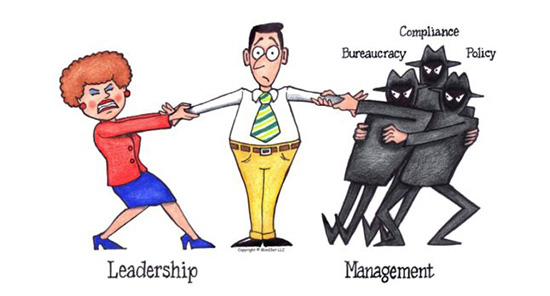Guest blog from Dr. Kim Hoogeveen, MindSet, LLC
When it comes to leading humans, companies can do some stupid things. I don’t mean arguably wrong decisions – no, I mean flat-out stupid things.
A true example: an employee takes a three day leave to attend to her sick child. After the first day of leave, her supervisor calls to explain that they are desperately short of staff for the next day, and asks if there is any way at all she could come in to help out the following morning. The employee calls her husband at work, explains the situation, and he agrees to change his schedule for the following morning to allow her to go in and help out at work. She does so, then takes the next day to again be with her ill son.
When she comes back to work the following week, she is told by her supervisor that unfortunately, she has now had five approved absences in a one year period, requiring a mandatory write up for the HR file. She says that is not accurate – she has only had four leave requests approved. Her supervisor then explains that this last leave to take care of her son counts as two leaves because she came back in to work that morning and then was gone again the following day, making it count as two separate, approved leaves.
Flash forward two months to her annual review. All is glowing, but because of the one write up for excessive leaves, her salary increase will be reduced by 1%.
Now if we told this story to 100 random people on the street and asked them for their reaction, I suspect 98 would say that the company’s actions were ridiculous – and even stupid. Here we have a loyal employee who responded to the call of her company to show up and help in a time of crisis, and the company subsequently punishes her for the effort.
Now most of you reading this are thinking this is so stupid that it could NEVER happen in my company.
Well, maybe. You see the leaders in the company that did this also likely would have once said that. Heck, I am sure many in this large company have no idea this now occurs in their system, and I can assure you that the folks who presently occupy the C-suite positions in this company did not awake one day and decide to do what they could to see that their company made incredibly stupid decisions.
So what can account for such a situation existing? Here are some of the conditions and themes that can result in leadership stupidity:
- Bureaucracy. There is a positive correlation between size of organization and a propensity for stupidity in HR. Why? Because as companies grow, there is often a passionate desire by those at the top to minimize chaos. How can this be achieved? By limiting human judgement and emphasizing the importance of following policy as created by those with wisdom at the top. Never let policy trump common sense.
- Lethargy. Front line supervisors should be willing to fight for their good staff members. If they are not passionate enough to fight, then they are not fervent enough to lead.
- Fear. It is possible that the front line supervisor may have once been passionate enough to fight for a good employee – and they got hammered by upper management for their efforts. This is the corporate version of no good deed shall go unpunished! Nothing will improve at such a company until the C-suite is fumigated.
- Distance. Upper management may be so far removed from the front lines that they have no idea what is happening. Ignorance of the law is no excuse; ignorance of how your company is treating its employees is inexcusable.
- No consequence. When stupid decisions are made consequence-free, they are likely to continue. Great companies are always looking for ways to become better – and often the quickest way to accomplish that is to make sure there is a significant punishment for those who make, or remain passive in the face of, stupid decisions.
- No core. Stupid decisions are more likely to occur within a system that lacks a clear set of leadership principles. Lacking such, decisions are made in a vacuum. Just as our values shape our personal conduct, leadership principles shape a company’s treatment of its employees.
Review the list above and consider if any of these factors are creeping up on you or your company to increase the risk of stupid decisions.
MindSet can also help you improve – consider our offering below.
To learn dozens of proven MindSet insights and tools that will help you advance your business and avoid making these costly mistakes, consider investing in our upcoming MindSet Leadership Series. Offered in partnership with the Greater Omaha Chamber, this elite program is designed to help executives, directors, and other key decision-makers propel their companies to even greater success.

